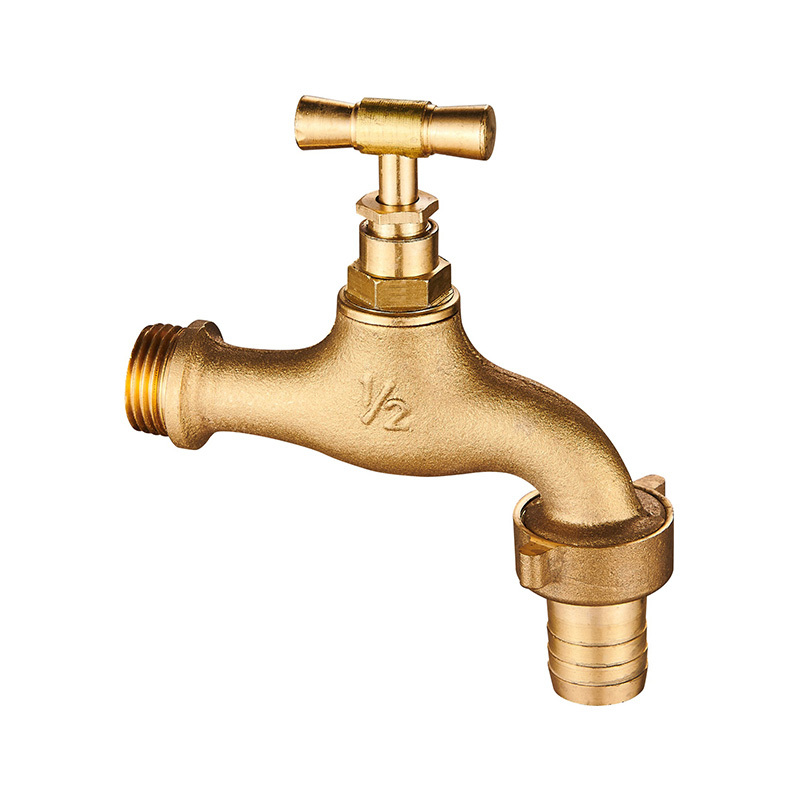21
2025
-
06
Understanding the Advantages of Metal Hot and Cold Water Pipes in Industrial Environments
Understanding the Advantages of Metal Hot and Cold Water Pipes in Industrial Environments
In the realm of industrial operations, the choice of piping materials can significantly affect performance, efficiency, and safety. Metal hot and cold water pipes have emerged as the preferred option for many applications due to their unparalleled durability, resistance to temperature fluctuations, and overall reliability. In this article, we will explore the numerous benefits of using metal pipes in industrial settings, addressing why they are a superior choice for transporting hot and cold water.
Table of Contents
- 1. Benefits of Metal Pipes for Hot and Cold Water
- 2. Durability and Lifespan of Metal Pipes
- 3. Thermal Resistance and Temperature Control
- 4. Corrosion Resistance in Industrial Environments
- 5. Cost-Effectiveness of Metal Hot and Cold Water Pipes
- 6. Compliance with Safety Standards and Regulations
- 7. Installation Flexibility and Maintenance
- 8. Environmental Considerations for Metal Pipes
- 9. Frequently Asked Questions (FAQs)
1. Benefits of Metal Pipes for Hot and Cold Water
Metal pipes, particularly those made from steel or copper, offer a myriad of advantages when used for transporting hot and cold water in industrial environments. Their inherent strength and robustness ensure that they can withstand the high pressures often found in industrial applications. This strength translates into longer-lasting systems with lower failure rates.
Moreover, metal pipes can be manufactured to various specifications, accommodating different temperature ranges and pressure requirements. This versatility allows industries to tailor their piping systems to specific needs, enhancing overall operational efficiency.
2. Durability and Lifespan of Metal Pipes
One of the standout features of metal hot and cold water pipes is their **extreme durability**. Unlike plastic alternatives, metal pipes are less likely to crack or degrade over time. In addition, they can endure extreme temperature changes without compromising their structural integrity. In many cases, metal pipes have a lifespan that can exceed **50 years**, making them a long-term investment for industrial operations.
Regular maintenance of metal pipes is straightforward, further extending their lifespan. Simple inspections and repairs can prevent minor issues from escalating into significant problems, making them an economical choice in the long run.
3. Thermal Resistance and Temperature Control
Metal pipes excel in applications requiring precise temperature control. Their ability to withstand high temperatures without warping or losing shape is crucial in industrial settings where hot water is necessary for processes like sterilization, cleaning, and even heating systems. Metal pipes provide excellent thermal conductivity, which allows for efficient heat transfer, ensuring that hot water remains at the desired temperature without significant losses.
In contrast, plastic pipes can struggle under extreme heat, leading to deformation and failure. By employing metal pipes, industries can maintain optimal temperature conditions, which is essential for effective operational performance.
4. Corrosion Resistance in Industrial Environments
Corrosion is a significant concern in industrial piping systems, particularly for those exposed to moisture and various chemicals. Metal pipes, especially those treated with anti-corrosive finishes or made from corrosion-resistant alloys, provide substantial defense against rust and degradation. This resistance to corrosion ensures that the pipes remain functional and safe over the years, reducing the risk of leaks and environmental hazards.
Additionally, using metal pipes can minimize the leaching of harmful materials into the water supply, a common issue with certain plastic pipes. This quality makes metal pipes an excellent choice for industries where water quality is paramount.
5. Cost-Effectiveness of Metal Hot and Cold Water Pipes
While the initial installation cost of metal hot and cold water pipes may be higher than that of plastic alternatives, the **long-term savings** are undeniable. Their durability and lifespan mean fewer replacements and repairs, translating to lower maintenance costs. Additionally, the efficiency of metal pipes in conducting heat reduces energy costs associated with heating water, further enhancing their cost-effectiveness.
Investing in metal piping systems can yield significant returns over time, making them a financially sound choice for many businesses looking to cut long-term operational costs.
6. Compliance with Safety Standards and Regulations
In many industrial sectors, adhering to safety standards is non-negotiable. Metal pipes are favored in applications where safety and reliability are critical. They comply with various industrial regulations, ensuring that operations meet the necessary safety protocols.
Using metal pipes helps reduce the risk of hazardous leaks, which can lead to catastrophic accidents. Industries that prioritize employee safety and environmental responsibility often choose metal piping solutions to uphold their commitment to maintaining safe work environments.
7. Installation Flexibility and Maintenance
The installation of metal hot and cold water pipes can be straightforward, thanks to their availability in various sizes and configurations. This flexibility enables industries to design piping systems that fit their unique layouts and space constraints. Moreover, metal pipes can be easily adapted to accommodate future expansions or modifications, making them a versatile choice for growing businesses.
Maintenance routines for metal pipes are also uncomplicated, often requiring minimal specialized knowledge. Regular inspections and prompt repairs can keep the systems running smoothly, ultimately reducing downtime and ensuring operational continuity.
8. Environmental Considerations for Metal Pipes
As industries become more environmentally conscious, the choice of materials used in construction and operations has come under scrutiny. Metal pipes are fully recyclable, reducing waste and promoting sustainability. Additionally, their longer lifespans mean fewer materials are required for replacements, further diminishing their environmental footprint.
By opting for metal hot and cold water pipes, industries can align themselves with eco-friendly practices, promoting not only their operational efficiency but also their commitment to environmental stewardship.
9. Frequently Asked Questions (FAQs)
What are the primary materials used for metal hot and cold water pipes?
The most common materials include copper, steel, and various alloys. Each material has unique properties suited for specific industrial applications.
How do metal pipes compare to plastic pipes in terms of heat resistance?
Metal pipes generally have superior heat resistance compared to plastic pipes, making them more suitable for high-temperature applications.
Can metal pipes be recycled?
Yes, metal pipes are 100% recyclable, making them an environmentally friendly option for industrial applications.
What maintenance is required for metal hot and cold water pipes?
Regular inspections for corrosion and leaks, as well as timely repairs, are essential to maintain the integrity of metal piping systems.
Are there any downsides to using metal pipes?
While metal pipes may have a higher initial cost than plastic pipes, their longevity and durability can offset these expenses over time.
Conclusion
Metal hot and cold water pipes stand as a superior choice for industrial environments, offering countless benefits ranging from durability and thermal resistance to cost-effectiveness and safety compliance. By understanding the advantages and characteristics of metal piping, industries can make informed decisions that enhance operational efficiency, reduce costs, and ensure the safety of their systems. Investing in metal piping solutions is not only a practical choice but also a strategic decision that positions businesses for long-term success.
metal hot and cold water pipes


